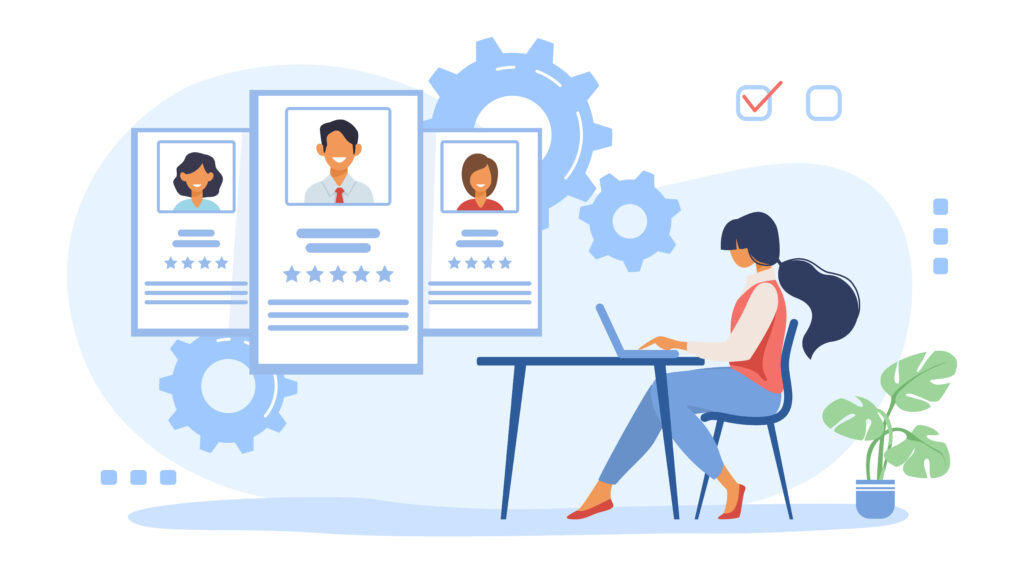A positive morale and planning within the workplace leads to greater productivity, thus prompting maximising functionality. There is not a lot of work required to make the changes necessary to improve the work quality. Overall, there are few tips that can ultimately boost productivity and give a positive outcome.
Developing productive work relationships is important because it helps individuals feel more satisfied at work and fosters a positive environment in the workplace. Lets discuss key steps on how to set clear goals and achieve maximizing functionality at work.
Goals
You need to know what you want to achieve, set specific and measurable goals. This is important so that you can track your progress and measure your success. Its better to avoid goals that are too ambitious or impossible to attain, as this will lead to disappointment and frustration.

The individual goals should also align with the mission and vision of your organization.
Putting your goals in writing makes them more tangible and helps you commit to them. Write them down and keep them somewhere visible, such as on your desk or in your planner.
Goals may change over time as your priorities and circumstances shift.
Review your goals regularly and make adjustments as needed to ensure they continue to align with your overall objectives.
If you have a big goal that may take a long time to achieve, break it down into smaller, more manageable goals or milestones. This will help you stay motivated and make progress towards your larger goal.
You can set clear goals that will help you stay focused and motivated at work, and ultimately maximize your functionality and productivity.
Priority
Prioritizing tasks is essential for maximizing functionality at work.
Determine which tasks are most important for achieving your goals and fulfilling your responsibilities. These are the tasks that should take priority over others.
Consider which tasks are time-sensitive or have strict deadlines. These tasks should also be given higher priority than others.
Consider the potential impact of each task on your team, department, or organization.
Tasks that have a high impact on overall performance or success should be given higher priority.
Some tasks may require more effort or resources than others. Consider the time, energy, and resources needed for each task when prioritizing.
If possible, delegate tasks to other team members who are better suited for the task or have more available time. This can free up your time to focus on higher-priority tasks.
Priorities can change quickly, so it’s important to re-evaluate your priorities regularly. Adjust your priorities based on changing circumstances and new information.
By prioritizing tasks effectively, you can manage your time more efficiently and focus on the tasks that are most important for achieving your goals and fulfilling your responsibilities.
Time
Managing your time effectively is essential for maximizing functionality at work.
- Block off specific times in your calendar for focused work, meetings, and breaks. This can help you stay on track and ensure that you have enough time to complete important tasks.
- Multitasking can lead to decreased productivity and increased stress. Instead, focus on one task at a time and give it your full attention.
- Taking breaks throughout the day can help you recharge your energy and stay focused. Take short breaks every hour or two, and take a longer break for lunch.
- Minimize distractions by closing unnecessary tabs, turning off notifications, and using noise-cancelling headphones if necessary.
- If possible, delegate tasks to other team members who are better suited for the task or have more available time. This can free up your time to focus on higher-priority tasks.
- Review your time management strategies regularly and adjust as needed. This can help you identify areas for improvement and continue to maximize your functionality at work.
By managing your time effectively, you can improve your productivity, reduce stress, and achieve your goals more efficiently.
Collaborate
Collaborating effectively with colleagues is crucial for maximizing functionality at work.

- Clear communication is key to effective collaboration. Be clear and concise in your communications and use active listening skills to ensure that you understand what others are saying.
- Treat your colleagues with respect and professionalism at all times.
- Avoid gossip and negative talk, and focus on finding solutions and achieving shared goals.
- Be open to feedback from your colleagues and use it to improve your work.
- Avoid getting defensive or taking feedback personally.
- Set clear expectations for yourself and your colleagues, including goals, timelines, and responsibilities. This can help ensure that everyone is on the same page and working towards the same objectives.
- Be willing to compromise and adapt to changing circumstances. This can help you build trust and strengthen your relationships with your colleagues.
- Celebrate successes and milestones with your colleagues. This can help build morale and motivation and strengthen your team’s sense of community.
By collaborating effectively, you can build strong relationships with your colleagues, achieve shared goals, and maximize your functionality at work.
Organise

Staying organized is essential for maximizing functionality at work.
- Create a to-do list each day and prioritize tasks based on their importance and urgency. This can help you stay focused and on track throughout the day.
- Use a calendar to schedule appointments, meetings, and deadlines.
- Set reminders to ensure that you don’t miss important events or tasks.
- Keep your workspace clean and organized.
- Use filing systems, trays, and other organizational tools to keep papers, supplies, and other items in their proper place.
- Use digital tools like project management software, cloud storage, and task management apps to keep your work organized and easily accessible.
- Set boundaries for your work and personal life.
- Avoid working outside of regular business hours, and set aside time each day for personal activities and hobbies.
By staying organized, you can reduce stress, increase productivity, and achieve your goals more efficiently.
Learn and Develop

Continuously learning and developing new skills is crucial for increasing functionality at work.
- Attend training programs and conferences to develop new skills and stay up-to-date with the latest industry trends and best practices.
- Seek feedback from your manager, colleagues, and clients to identify areas for improvement and opportunities for growth.
- Volunteer for new projects and assignments to challenge yourself and develop new skills. This can also demonstrate your willingness to take initiative and grow in your role.
- Read industry publications, blogs, and books to stay informed and gain new insights into your field.
- Work with colleagues who have different skills and expertise to learn from their experience and knowledge.
- Use online courses and tutorials to learn new skills at your own pace and on your own schedule.
Learning and development can increase your value to your organization, improve your job performance, and increase your potential for career advancement.
